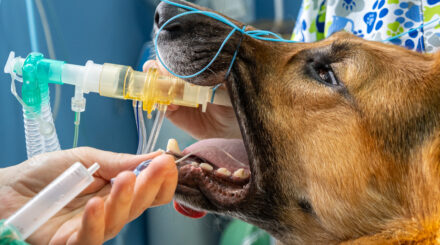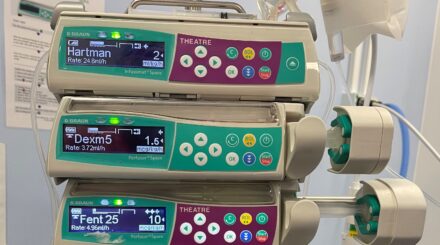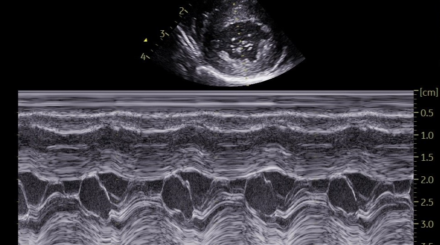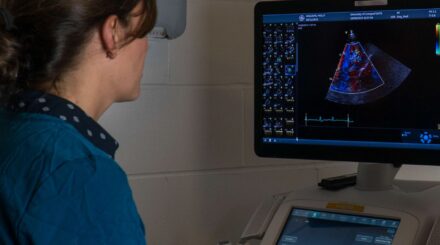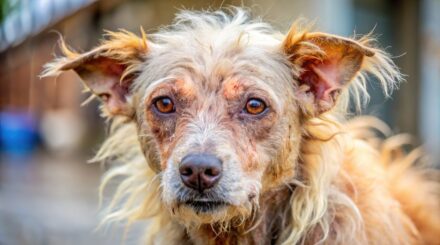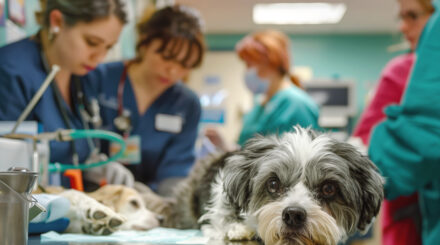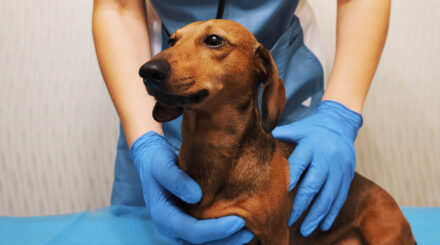Mastering small animal anaesthesia
Anaesthesia & Analgesia | 8 CPD hours
This veterinary thought exchange online tutored course is an overall look at the different aspects of anaesthesia and analgesia. Sedation and anaesthesia are the unavoidable first step in most diagnostic…
Beyond the gas: Advanced anaesthesia techniques in small animals
Anaesthesia & Analgesia | 10.5 CPD hours
This Veterinary Thought Exchange online tutored course takes a deep dive into advanced concepts in anaesthesia that will help you to refine your techniques and take your skills to a…
Heartfelt matters: Exploring heart disease in dogs and cats
Cardiology | 13 CPD hours
This veterinary thought exchange online tutored course takes a more detailed look at the investigation and management of heart disease in dogs and cats. Cardiac disease is a relatively common…
Heart in focus: Basic echocardiography in dogs and cats
Cardiology | 9 CPD hours
This veterinary thought exchange online tutored course is aimed at veterinarians in practice that have little to no experience of echocardiography. In this 9-week course we will cover everything from…
Mastering Advanced Echocardiography
Cardiology | 12 CPD hours
This veterinary thought exchange online tutored course is aimed at veterinarians in practice that have little to no experience of echocardiography. This course follows on from the basic echocardiography course….
Chew on this! Dentistry fundamentals in small animal veterinary practice
Dentistry | 11 CPD hours
This veterinary thought exchange online tutored course is an overall look at dental diseases and dental treatments in dogs and cats. Dental disease is one of the most commonly encountered…
Dipping your toes into dermatology: Understanding and treating dermatological issues in dogs and cats
Dermatology | 10 CPD hours
This veterinary thought exchange online tutored course takes a more detailed look at the investigation and management of the various dermatological conditions that may present to you in veterinary practice…
Unseen perils: Navigating toxicology in small animal patients
ECC | 7 CPD hours
Dealing with animals that have ingested toxins can be one of the most stressful and challenging situations for us, when working in small animal practice. With this new tutored, interactive…
Code Red: Navigating Emergency and Critical Care in small animals
ECC | 19 CPD hours
Emergency & Critical Care (ECC) is an exciting topic that challenges the clinician to be prepared and organised for the unexpected arrival of emergency cases. This course has been updated…
Gut Matters: Gastrointestinal and pancreatic disease in dogs & cats
Internal Medicine | 15.5 CPD hours
This veterinary thought exchange online tutored course takes a more detailed look at the investigation and management of gastrointestinal diseases in dogs and cats. Gastrointestinal diseases are common in small…
Endocrinology in crisis: Unravelling hormonal havoc!
Internal Medicine | 13 CPD hours
This veterinary thought exchange online tutored course takes a more detailed look at the investigation and management of endocrine diseases in dogs and cats. Endocrine diseases are common in small…
Breathe easy: Understanding respiratory disease in small animals
Internal Medicine | Cardiology | 20 CPD hours
Do you want to improve your diagnosis and management of small animal respiratory disease cases? Small animal respiratory diseases can be both stressful and frustrating to manage. Clinical signs of…
A fundamental approach to feline medicine: Looking good, feline good!
Internal Medicine | 15 CPD hours
This recently developed online tutored course offers a comprehensive introduction into the prevalent medical issues encountered in feline patients. We will navigate through a diverse range of disorders affecting various…
The blood and beyond… Anaemia, coagulation and transfusion medicine in dogs and cats
Internal Medicine | 15 CPD hours
This veterinary thought exchange online tutored course takes a more detailed look at the investigation and management of anaemia, coagulation and transfusion medicine in dogs and cats. We will be…
Liver and pancreatic predicaments in dogs and cats
Internal Medicine | 17 CPD hours
This veterinary thought exchange online tutored course takes a more detailed look at the investigation and management of liver and pancreatic disease in dogs and cats. The liver plays a…
Urinary tract disease in dogs and cats: From A to Pee
Internal Medicine | 18 CPD hours
A detailed look at the causes, investigation, and management of urinary tract disease in dogs and cats. Urinary tract disease is a very common reason for patients to present in…
Mind and matter: Investigating neurological disease in dogs & cats
Neurology | 8.5 CPD hours
This veterinary thought exchange online tutored course provides an overview on the different aspects of neurology. You will learn the clinically relevant information that will enable you to recognize a…
Mastering nutrition in small animal practice
Nutrition | Veterinary Nursing | 11 CPD hours
Nutrition is central to the health and wellbeing of all pets. Throughout each pet’s life nutritional requirements change and so the nutrition provided to them must adapt also. At every…
A fundamental approach to diagnosing and treating cancer in small animal veterinary practice
Oncology | 10 CPD hours
This veterinary thought exchange online tutored course is aimed at veterinarians in practice that have little to no experience in diagnosing and treating cancer in small animal clinical practice. Cancer…
Clear vision: Understanding ophthalmology in small animal practice
Ophthalmology | 10 CPD hours
This course aims to demystify common ophthalmic conditions seen in practice, with top tips for gaining the most from your examination as well as targeted treatments. Working from the front…


